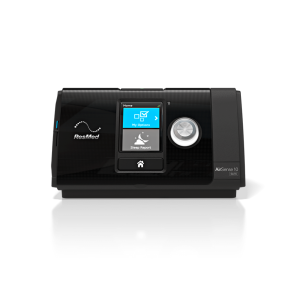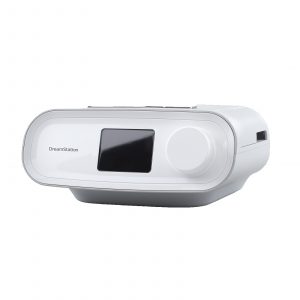Fact Checked
Intus Healthcare’s writers, customer service team, and sleep experts review and ensure this information is accurate.
Last updated on January 30th, 2024 at 09:00 am
Alcohol can have a significant impact on sleep. While it may initially make you feel drowsy and help you fall asleep faster, it can disrupt the quality of your sleep and lead to various sleep-related issues.
Everyone reacts differently to excessive alcohol consumption. Consuming a high amount of alcohol per night (more than two drinks for a male and more than one for a female) will decrease your sleep quality by 39.2%1.
Table of Contents
The effect alcohol has on our sleep
In addition to disrupting your sleep, you may also experience:
- Dehydration – Alcohol causes dehydration which can increase your chances of kidney disease. Ensure you drink water regularly to avoid dehydration. It is advised to drink eight 8-ounce glasses of water a day.
- Snoring – As well as slowing your breathing, alcohol causes the muscles at the back of your throat to relax, causing a blockage in your airflow. This results in snoring and increased apnoea episodes.
- Poor performance – Alcohol has a sedative effect, depriving you of energy and causing you to become tired or ‘sluggish’ throughout the day.
- Mood – Alcohol is a central nervous system depressant. It slows down your brain activity and changes your mood and self-control.
The NHS recommends drinking no more than 14 units of alcohol per week, equivalent to six 175ml glasses of wine or six pints of 4% beer2.
Causes
Alcohol can impact the severity of Sleep Apnoea. Alcohol is a central nervous system depressant, which can slow down brain activity and cause drowsiness. When consumed in large amounts, alcohol can cause the muscles in the airway to relax, leading to airway obstruction and the development or worsening of Sleep Apnoea symptoms.
Research shows that alcohol’s sedative effect might make you feel like you’re in for a good night’s rest. However, it reduces your REM sleep cycle (Rapid-eye movement). Your REM cycle occurs 90 minutes after falling asleep, known as the restorative stage of sleep, where dreams occur. Disruptions to your REM sleep reduce daytime alertness and concentration and prevent you from getting the sleep you need3.
Studies have shown that alcohol consumption can increase the frequency and severity of Sleep Apnoea events, particularly in people with the disorder. In addition, alcohol consumption has been linked to a greater risk of developing Sleep Apnoea in the first place, especially in people who drink heavily or regularly.
If you have Sleep Apnoea, it is generally recommended to avoid or limit alcohol consumption, especially before bedtime. Additionally, it is a good idea to discuss your alcohol consumption with your healthcare provider, as they can help you determine the appropriate amount of alcohol, if any, that is safe for you to consume.
We all know that drinking too much alcohol harms our health. It is estimated that around 70% of adults in the UK drink alcohol4. The World Health Organization (WHO) recommends that adults should limit their alcohol intake to no more than two drinks per day for men and no more than one drink per day for women, to reduce the risk of alcohol-related health problems.
Alcohol & Sleep Apnoea
Although alcohol alone won’t cause Sleep Apnoea, studies show that alcohol can increase the risk of developing Sleep Apnoea by 25% because alcohol causes your throat muscles to relax, creating more resistance during breathing5. Alcohol also reduces your arousal response time, which is your body’s instinct to wake up when you cannot breathe.
The effect alcohol has on your OSA depends on how much you consume, your age, body shape and gender. This can provoke Sleep Apnoea symptoms, generating more dangerous, prolonged breathing episodes. It is advised to avoid alcohol consumption 4 hours before you sleep so your body has the time to process the alcohol.
Can alcohol affect my weight?
Alcohol can stimulate appetite and increase food intake. This is because alcohol consumption can stimulate the release of certain hormones, such as ghrelin, known as the “hunger hormone.” Ghrelin is produced in the stomach and stimulates hunger and food intake.
In addition, alcohol can also reduce inhibitions and increase the pleasure associated with eating, which can lead to overeating or consuming more calories than necessary. This can be especially problematic for people trying to manage their weight or follow a healthy diet.
It is also worth noting that many alcoholic drinks, such as cocktails and mixed drinks, are high in sugar and calories, which can contribute to weight gain. Additionally, alcohol can impair judgment and decision-making, leading to unhealthy food choices.
Therefore, it is essential to be mindful of alcohol consumption and aware of the potential impact on appetite and food intake. Weight loss can hugely benefit people with Sleep Apnoea, so increasing your appetite is not the best solution for your long-term health.
Long Term Effects
Long-term alcohol abuse can have a detrimental impact on various aspects of a person’s health and well-being. Here are some of the potential long-term effects of alcohol abuse:
– Cognitive decline: Impairing your judgment and decision-making.
– Liver damage: Excessive alcohol consumption can lead to liver diseases such as alcoholic hepatitis, fatty liver disease, cirrhosis, and liver cancer. These conditions can range from inflammation and fat accumulation in the liver to severe scarring and liver failure.
– Cardiovascular problems: Chronic alcohol abuse can increase the risk of developing cardiovascular issues, including high blood pressure, irregular heart rhythms (arrhythmias), heart muscle damage (cardiomyopathy), and an increased risk of stroke.
– Gastrointestinal issues: Alcohol can irritate the digestive system, leading to gastritis (inflammation of the stomach lining), pancreatitis (inflammation of the pancreas), and gastrointestinal bleeding. It can also increase the risk of developing oesophagus, stomach, liver, and colon cancers.
– Weakened immune system: Alcohol abuse can weaken the immune system, making individuals more susceptible to respiratory infections, pneumonia, and tuberculosis. It can also impair the body’s ability to heal wounds and increase the risk of post-surgical complications.
– Increased risk of sleep disorders: This may include Insomnia, Sleep Apnoea, Narcolepsy and Restless Leg Syndrome.
Solutions
If you have OSA, it is recommended that you minimise alcohol consumption. But if you want to enjoy an alcoholic drink without impacting your sleep, here are some top tips.
- Use your CPAP machine – it is advised never to go without your CPAP machine if you need one. The device’s pressure will keep your airways open when your throat muscles relax.
- Sleep on your side – Side sleeping is the best position for OSA patients. Side sleeping allows gravity to open your airways, making your CPAP therapy more effective.
- Track how much you drink – Keep an eye on how much alcohol you consume and try not to drink alcohol 4 hours before you sleep.
What are the benefits of drinking less alcohol?
- Lowers blood pressure and heart rate
- Decreases the chance of developing heart disease
- Better mood, concentration, and performance
- Get a restful night’s sleep
- Beneficial for maintaining a healthy weight and reduces cholesterol levels
- Wake up feeling refreshed with more energy
- It saves you money!
Summary
If you are concerned about how your alcohol consumption could affect the severity of your Sleep Apnoea, contact your doctor or healthcare provider for advice and help.
References
- Pietilä, J. et al. (2018) ‘Acute effect of alcohol intake on cardiovascular autonomic regulation during the first hours of sleep in a large real-world sample of Finnish employees: Observational Study’, JMIR Mental Health, 5(1). doi:10.2196/mental.9519.
- NHS (2021) Drink less, NHS choices. Available at: https://www.nhs.uk/better-health/drink-less/#:~:text=It’s%20recommended%20to%20drink%20no,risk%20of%20harming%20your%20health. (Accessed: 17 May 2023).
- Ian M. Colrain (2018) Alcohol and the Sleeping Brain. Available at: https://www.ncbi.nlm.nih.gov/pmc/articles/PMC5821259/ (Accessed May 16, 2023)
- Health Survey for England (2022) Frequency of drinking in the last 12 months, by age and sex, NHS choices. Available at: https://digital.nhs.uk/data-and-information/publications/statistical/health-survey-for-england/2021/part-3-drinking-alcohol#:~:text=of%20pure%20alcohol.-,Frequency%20of%20drinking%20in%20the%20last%2012%20months%2C%20by%20age,%25%20and%2076%25%20respectively). (Accessed: 17 May 2023).
- Evangelia Simou (2017) Alcohol and the risk of Sleep Apnoea: a systematic review and meta-analysis. Available at: https://www.ncbi.nlm.nih.gov/pmc/articles/PMC5840512/ (Accessed May 16, 2023)








